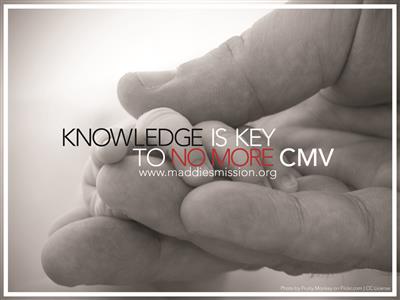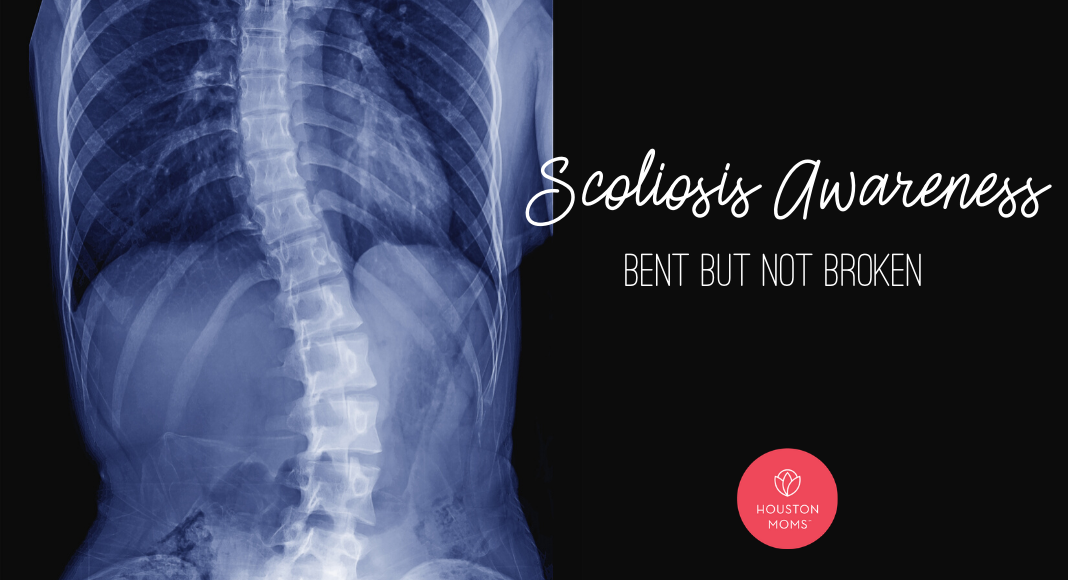 Today’s series is composed of four women brought together by the most unfortunate circumstances. They all have one thing in common…Cytomegalovirus {CMV} has significantly changed their lives. However, their individual experiences resulting from this awful virus are vastly different. On this last day of National Congenital Cytomegalovirus Awareness Month, we hope that you will read their stories, learn about congenital CMV, and share this information with others to spare them the pain that this preventable virus has caused each of them.
Today’s series is composed of four women brought together by the most unfortunate circumstances. They all have one thing in common…Cytomegalovirus {CMV} has significantly changed their lives. However, their individual experiences resulting from this awful virus are vastly different. On this last day of National Congenital Cytomegalovirus Awareness Month, we hope that you will read their stories, learn about congenital CMV, and share this information with others to spare them the pain that this preventable virus has caused each of them.
“CMV is the most common virus that most women have never heard about but should know about,” states Dr. Demmler-Harrison, a leading CMV expert located in Houston. Dr. Demmler-Harrison, many medical experts, and CMV moms around the country are working hard to change this statistic, one family at a time.
Facts about Cytomegalovirus
In the United States, congenital CMV causes one child to become disabled almost every hour. Given this statistic, it is hard to believe that only 13% of women have ever heard of it. CMV is the leading preventable viral cause of developmental disability in newborns. The key word is preventable. Women must know that it exists in order to prevent it. Approximately 30,000 babies are born with congenital CMV each year in the U.S. Of these, 400 die each year due to severe complications from the virus and at least 5,000 per year suffer permanent disabilities including such things as hearing loss, vision loss, cerebral palsy, and many other devastating effects. Almost all are surprised to learn that disability from CMV affects approximately the same number of newborns each year as Down Syndrome, a chromosomal disorder familiar to almost everyone.
 CMV is a common virus that infects people of all ages and is quite prevalent among children between 1 and 3 years of age, particularly those who attend childcare. These infections are often silent; that is, those who are infected are not harmed and may show no symptoms of infection. Close and prolonged contact with body fluids, such as saliva and urine of young children, is a major cause of infection for mothers of toddlers, childcare workers, and preschool teachers. This is only a problem if these women are pregnant {or have weakened immune systems}. In other cases, since the virus is very common and usually not harmful, it is not necessary to prevent transmission. If a pregnant woman has never been infected with CMV, she is at risk for a primary infection, potentially the most serious to her unborn child. About half of all pregnant women in the U.S. fall into this category. Between 1 and 4% of them will contract a primary CMV infection during pregnancy and about 40% of these will transmit CMV to the fetus. The numbers may seem small, but when your loved one is affected, they might as well be 100%.
CMV is a common virus that infects people of all ages and is quite prevalent among children between 1 and 3 years of age, particularly those who attend childcare. These infections are often silent; that is, those who are infected are not harmed and may show no symptoms of infection. Close and prolonged contact with body fluids, such as saliva and urine of young children, is a major cause of infection for mothers of toddlers, childcare workers, and preschool teachers. This is only a problem if these women are pregnant {or have weakened immune systems}. In other cases, since the virus is very common and usually not harmful, it is not necessary to prevent transmission. If a pregnant woman has never been infected with CMV, she is at risk for a primary infection, potentially the most serious to her unborn child. About half of all pregnant women in the U.S. fall into this category. Between 1 and 4% of them will contract a primary CMV infection during pregnancy and about 40% of these will transmit CMV to the fetus. The numbers may seem small, but when your loved one is affected, they might as well be 100%.
It seems unconscionable not to inform women of the risk of infection and most importantly the prevention steps that might help them avoid catching CMV and possibly passing it to their unborn children. In the present climate, most families learn about CMV and prevention steps they could have taken some time after the virus has infected their child, most often after the baby is born.
Prevention
 The prevention steps are simple, but most women would not think to implement them. That’s why education is so important. It would never occur to most mothers that sharing food or drink with their own toddlers could pose a threat to their unborn children. After all, mothers have been sharing body fluids with their young children, in one way or another, since the day they were born.
The prevention steps are simple, but most women would not think to implement them. That’s why education is so important. It would never occur to most mothers that sharing food or drink with their own toddlers could pose a threat to their unborn children. After all, mothers have been sharing body fluids with their young children, in one way or another, since the day they were born.
With proper education about the simple hygiene precautions they can take, pregnant women have the power to reduce their risk of catching this virus. Medical studies have shown that following three simple hygiene precautions can reduce the chance of catching CMV by as much as 50%. “An ounce of CMV awareness and 3 simple hygiene precautions will significantly reduce the risk of catching CMV during pregnancy,” says Dr. Demmler-Harrison.
3 Simple Hygiene Precautions for Pregnant Women
- Do not share food or drinks with a toddler. No more “one for mommy and one for baby.”
- Don’t kiss a child under 6 years of age on the lips or cheek. Instead, kiss them on the top of the head and give them a big, long hug.
- Wash your hands often with soap and water for 15-20 seconds, especially after changing diapers, wiping noses or drool, and handling toys.
For more information about CMV, including information about available testing for women to determine whether or not they have ever been infected with CMV, please visit ::
Center for Disease Control and Prevention
National Congenital CMV Disease Registry
Stop CMV
Maddie’s Mission
Educating Others
 Another aspect the four women in this series share is their inspiration from a remarkable woman – Dr. Gail Demmler-Harrison, a Pediatric Infectious Disease Specialist at Texas Children’s Hospital and Baylor College of Medicine. She has spent the last thirty years researching congenital CMV and treating patients who are suffering the long-term effects of the virus. Her passion for evaluating prevention methods and promoting CMV awareness in the community has resonated with mothers for decades. Dr. Demmler-Harrion’s philosophy “mobilize the moms” and her efforts to inspire and help community through grass roots CMV awareness efforts is nothing short of amazing. “Action is the antidote to despair,” says Dr. Demmler-Harrison. She further goes on to say that CMV “families represent the most potent solution for action and change in favor of CMV awareness, prevention and treatment.”
Another aspect the four women in this series share is their inspiration from a remarkable woman – Dr. Gail Demmler-Harrison, a Pediatric Infectious Disease Specialist at Texas Children’s Hospital and Baylor College of Medicine. She has spent the last thirty years researching congenital CMV and treating patients who are suffering the long-term effects of the virus. Her passion for evaluating prevention methods and promoting CMV awareness in the community has resonated with mothers for decades. Dr. Demmler-Harrion’s philosophy “mobilize the moms” and her efforts to inspire and help community through grass roots CMV awareness efforts is nothing short of amazing. “Action is the antidote to despair,” says Dr. Demmler-Harrison. She further goes on to say that CMV “families represent the most potent solution for action and change in favor of CMV awareness, prevention and treatment.”
In addition to her career as an Infectious Disease Specialist, Dr. Demmler-Harrison serves on the board of directors for Stop CMV, the world’s largest all-volunteer CMV 501(c)(3) organization. She has also been an advisor to Maddie’s Mission and a motivation to countless women who fight this virus for their children every day.

















I am happy to see theses stories and the fact that people will become more educated. I am a pediatric speech therapist and when I was pregnant with my twin girls a small finding in an ultrasound led us to do further testing so see if CMV may have played a role. Thankfully, my daugher was totally healthy and had no complications, but the testing revealed that I was CMV negative and with my job at risk of developing a primary CMV infection from my patients if I was not careful. I am SO thankful that my doctor shed some light on this serious and hardly ever talked about virus. In addition, he brought to my attention that you are only as safe as your husand. If your husband works with kids or shares food with your little ones it could be passed along as well. We did things very differently for the remainder of my pregnancy knowing I was CMV negative. I hope more and more people start taking these small steps! 🙂